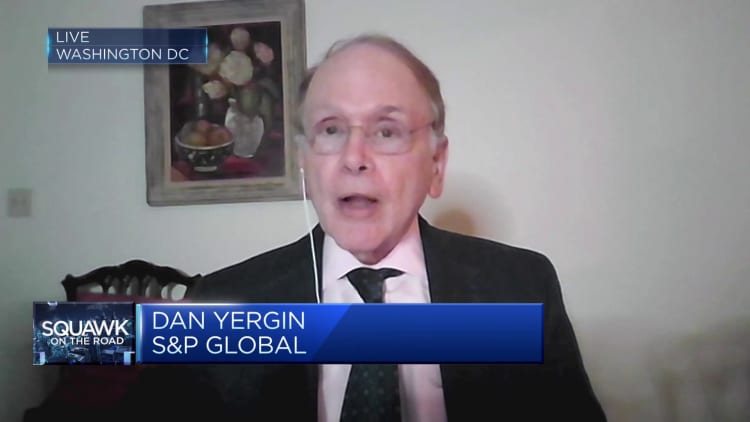[ad_1]

Europe may have done a good job in reducing its dependency on Russian oil and gas and mitigating an energy crisis caused by the war in Ukraine but it’s “not out of the woods” yet, the head of the International Energy Agency (IEA) told CNBC.
“Europe was able to transform its energy markets, reduce its share of Russian gas to less than 4%, and its economy still didn’t go through a recession,” Fatih Birol, the IEA’s executive director told CNBC’s Martin Soong on Sunday.
“Europe emissions have declined … and gas storage is at very decent levels,” Birol said, speaking on the sidelines of the Group of Seven summit in Hiroshima, Japan.
Russia has traditionally played a pivotal role in the world’s energy complex, but Western nations’ reliance on the country’s energy has been severely reduced as they continue to unveil new sanctions to punish Russia for its ongoing invasion of Ukraine.
“Europe countries did a good job… last winter,” the IEA chief said, highlighting that the region managed to successfully keep the lights on and kept a winter crisis at bay, thanks in part to a milder than expected winter.
Birol warned that the global energy market still has three main hurdles to overcome this year, however.
1. Rising demand from China
The world’s energy supply was abundant last year when China was still under lockdown and bought less oil and gas due to a slowdown in economic activity. However, the same cannot be said now and Europe may face a more challenging winter this year.
LNG (liquefied natural gas) demand from China is expected to pick up in the second half of the year, Birol said, adding that gas imports to the country is a “key determiner” of demand for natural gas markets.
But Birol believed there could be a silver lining — prices could be milder than predicted and he does not expect to see a “big boom” of imports from China.

2. Reliance on Russia still remains
Another key challenge facing energy markets is that Europe’s dependency on Russian gas has not been completely eradicated. Many countries in the region were forced into an energy crisis last year when imports of Russian gas were severely reduced.
Gas exports from Russian state energy giant Gazprom to Switzerland and the EU fell by 55% in 2022, the company said in January. Birol noted that if there were further reductions in gas imports “for political reasons,” Europe could again face “some challenges” in the coming winter.
Birol believed G-7 and European countries will not go back into making any agreements with Russia, adding that Russia’s gas story is “finished” and “it’s over.”
3. U.S. debt default
Global energy market participants are also keeping a close eye on fractious negotiations between the White House and Republicans over the U.S. debt ceiling. Without a deal, the U.S. could face default in early June although this is seen as unlikely.
Negotiations were paused while President Biden attended the G-7 summit in Japan but he’s due to return to Washington, D.C. on Sunday. The president said at a press conference at the summit that he’s “not at all” concerned about the negotiations and that “we’ll be able to avoid a default and we’ll get something decent done.”
Birol said a U.S. debt default would cause oil demand and prices to drop, but agreed that such a scenario was unlikely.
“I would avoid giving you a precise number, but we could expect a significant drop in the oil price if we see such a default.”
“This issue in the United States will be dealt with and common sense will prevail. And I don’t see a major risk for the global oil markets. But of course, oil markets are always involved with risks.” he added.
Oil prices rebounded on Friday from losses of more than 1% the previous day as investors turned cautiously optimistic that the risks of a U.S. debt default were easing as talks continued.
[ad_2]

